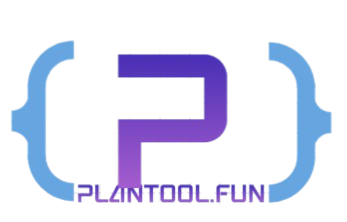The Importance of Learning Programming Languages in 2025
In today’s rapidly evolving job market, learning programming languages has become an essential skill for professionals across various sectors. The digital transformation has led to an increased reliance on technology, making it imperative for individuals to equip themselves with programming knowledge. Organizations now integrate software solutions to streamline processes and enhance productivity, thereby creating an increased demand for skilled tech professionals. Consequently, programming languages represent not only a valuable asset but also a necessity for career advancement.
The growth of software development is another driving force behind the importance of learning programming languages by 2025. As businesses continue to embrace digital solutions, the need for bespoke software applications increases. This trend creates a wealth of job opportunities in areas such as web development, mobile application development, and data science. Knowledge of programming languages such as Python, JavaScript, and Java can open doors to lucrative positions and empower candidates to contribute to innovative projects. As programming languages evolve, staying abreast of the latest trends is crucial for professionals looking to safeguard their career trajectories.
Moreover, understanding programming languages fosters a solid foundation in problem-solving and analytical thinking. These cognitive skills are transferable and can be applied in various aspects of a profession, enabling individuals to tackle complex issues effectively. By learning programming languages, professionals are not only enhancing their technical skills but also enhancing their overall employability in a competitive job market.
As technology continues to advance at an unprecedented pace, it is essential for individuals to remain proactive in their professional development. Learning programming languages will be vital for those aiming to thrive in a tech-driven landscape. By continually updating their skillset and embracing emerging programming trends, professionals can future-proof their careers and maintain their relevance in an ever-changing environment.
Top Programming Languages to Consider for 2025
As we look ahead to 2025, several programming languages are poised to stand out, driven by industry demand, versatility, and ease of learning. Among these, Python is leading the pack, celebrated for its simplicity and broad applicability. With its strong presence in data science, machine learning, web development, and automation, Python not only appeals to beginners but also promises lucrative job opportunities for experienced developers.
JavaScript remains a crucial language, particularly in web development. As the backbone of interactive web applications, its frameworks like React and Angular allow for the creation of dynamic user interfaces. The need for skilled JavaScript developers continues to grow, making it an essential language for anyone seeking a career in tech.
Java, although older, maintains its relevance due to its robustness and portability, which makes it a favorite in enterprise environments. With significant usage in mobile app development—especially Android—learning Java is indispensable for programmers looking to enter the mobile app market or work on backend systems.
Another language gaining traction is Go, developed by Google. Known for its efficiency and performance, Go is suitable for building scalable applications and microservices. Its growing popularity among startups and established companies highlights its demand and utility in modern software development.
Lastly, Rust is emerging as a strong contender for system-level programming. Renowned for its memory safety and performance, Rust is increasingly adopted in industries that prioritize systems security and efficiency. Its steep learning curve may deter some beginners, but its potential for high-paying roles makes it an attractive long-term investment.
Each of these programming languages not only ranks high in terms of demand but also offers a blend of options for all skill levels, ensuring that aspiring programmers have ample opportunities to build a successful career in technology.
Emerging Technologies Influencing Language Demand
The landscape of programming languages is continuously evolving, shaped significantly by emerging technologies. In recent years, fields such as artificial intelligence (AI), machine learning (ML), blockchain, and cloud computing have gained rapid traction, thereby influencing the demand for specific programming languages. Each of these technologies requires particular skill sets, driving developers to learn languages that are well-suited for these applications.
Artificial intelligence and machine learning have particularly transformed the programming arena. Languages such as Python and R have surged in popularity due to their robust libraries and frameworks, which facilitate the development of algorithms and the processing of vast datasets. Data scientists and AI engineers increasingly gravitate towards Python for its simplicity and versatility, making it a language that’s highly sought after in job markets aligned with these technologies.
Blockchain is another technological advancement reshaping programming language demand. Languages like Solidity, designed specifically for developing smart contracts on the Ethereum blockchain, are gaining prominence. The rise of decentralized applications (dApps) has sparked interest in blockchain technology, compelling developers to acquire skills in languages that enable them to create secure and efficient blockchain solutions. This shift denotes a clear correlation between technology adoption and language choice, showcasing how innovative domains dictate academic and career pursuits among programmers.
Cloud computing has further broadened the landscape by introducing languages like JavaScript, Go, and Ruby to the spotlight. As organizations migrate their operations to cloud platforms, the need for languages that efficiently handle cloud infrastructure and services has become paramount. Developers proficient in cloud-friendly languages are increasingly viewed as essential assets for businesses aiming to leverage the full potential of scalable solutions.
Overall, the interplay between emerging technologies and programming languages illustrates a dynamic market driven by ongoing innovation. As sectors evolve, so too must the skill sets of professionals, leading to a continuous cycle of learning and adaptation in the programming landscape.
Tips for Learning Programming Languages Effectively
As the demand for skilled programmers continues to rise, it is essential to adopt effective strategies for learning programming languages that align with personal goals and the evolving tech landscape. To enhance your skills and remain motivated throughout your learning journey, consider these practical tips.
First, selecting the right learning platform is critical. Numerous online resources, including websites like Codecademy, Coursera, and Udemy, offer structured courses in various programming languages. These platforms accommodate different learning styles, whether you prefer guided instruction or self-paced learning. Additionally, exploring interactive platforms like LeetCode or HackerRank can provide valuable problem-solving practice that will help solidify your understanding.
Engaging in hands-on projects is another effective way to learn. As you acquire new knowledge, apply it by working on personal projects or contributing to open-source initiatives. These practical experiences allow you to face real-world challenges, thereby enhancing your skills and boosting your confidence. Finding relevant projects can be as simple as developing a small application or automating a routine task at work.
Joining coding communities is also vital for continuous learning and motivation. Online forums such as Stack Overflow, Reddit, or specialized Discord servers facilitate networking with other learners and experienced developers. These platforms allow you to seek advice, share resources, and collaborate on projects, fostering a sense of community that can sustain your enthusiasm for learning.
Lastly, seeking mentorship can significantly improve your learning experience. Finding a mentor, whether through formal mentorship programs or informal networks, can provide invaluable guidance, support, and accountability. Mentors can help you navigate challenges, provide feedback on your coding practices, and share their experiences in the industry.


No responses yet